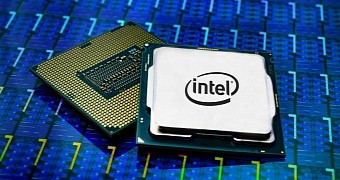Apple is stepping away from Intel chips, as the company is investing big in customer ARM-based Apple Silicon, so in the long term, it looks like the two firms would rather become competitors than work together.
But Intel’s new CEO Pat Gelsinger said in a recent interview with Yahoo Finance that he’s still hopeful his company would work together with Apple, though he admitted that competing against the Cupertino-based tech giant is fun.
“Apple is a customer, and I hope to make them a big foundry customer because today they're wholly dependent on Taiwan Semiconductor. We want to present great options for them to leverage our foundry services, as well, just like we're working with Qualcomm and Microsoft to leverage our foundry. We're going to be delivering great technology, some things that can't be done anywhere else in the world,” he said.
Indeed, Intel has recently launched a new marketing campaign that’s directly aimed at Apple, but on the other hand, the company hopes in the long term work together with the Cupertino-based tech giant is something that would eventually happen.
Growing demand for PCs
Gelsinger also confirmed that demand for PCs continuously increases, and obviously, this happens for a very simple reason: people transitioned from working at an office to working from home because of the global health issue, and this has, in turn, increased the demand for new computers to remain productive even from the safety of our own ad-hoc offices.
“So obviously, you've seen some of the competitive energies [in chipmaking] resume because there's a lot of great innovation to be done, and we haven't seen PC demand at this level for a decade and a half. The world needs more of that, and there is competitive fun going on with Apple and the Mac ecosystem,” the Intel official explained.
Of course, Apple is still very committed to Apple Silicon, so the transition from Intel to its own chips should be ready in just a few years.

 14 DAY TRIAL //
14 DAY TRIAL //